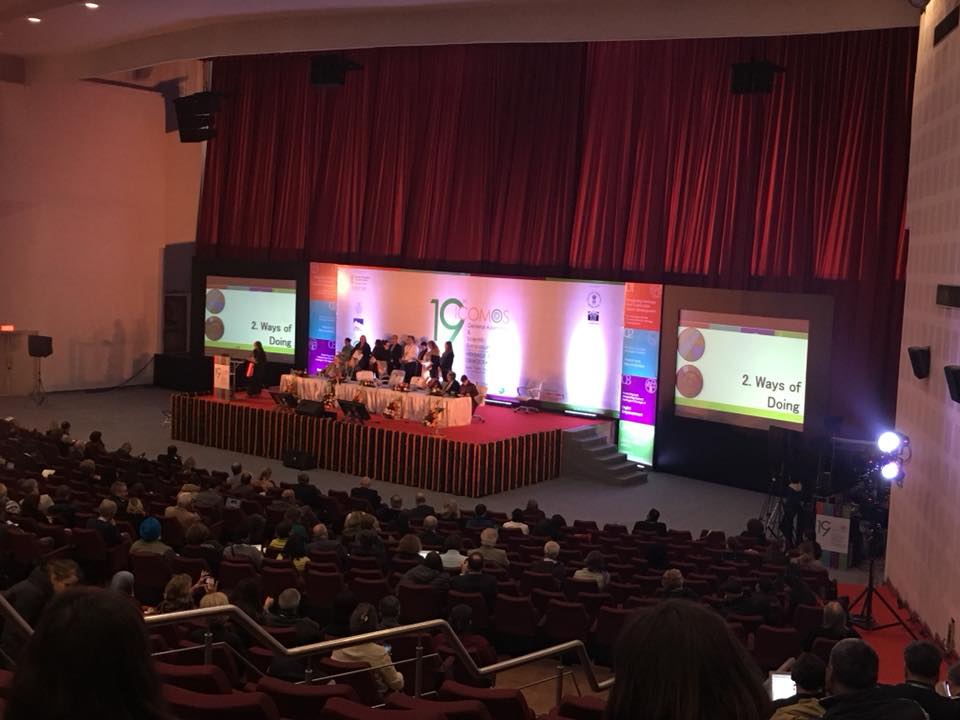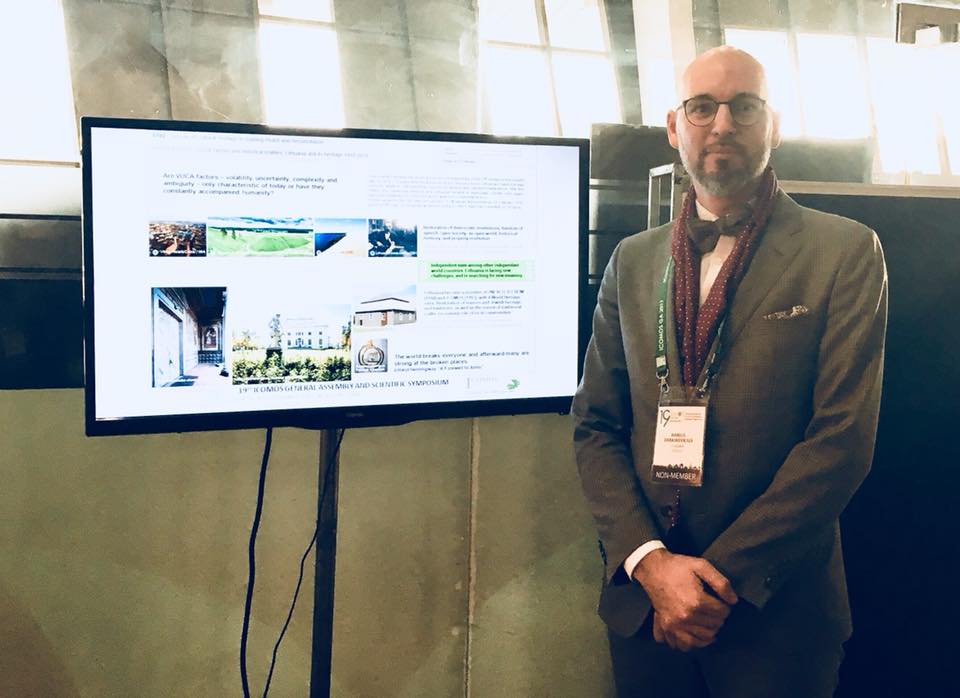
M. Daraškevičius was participating at ICOMOS 19th General Assembly & Scientific Symposium 2017: Heritage and Democracy, New Delhi, India, 2017 December 11-15, where also presented a poster presentation (together with assoc. prof. dr. Dalė Puodžiukienė): VUCA factors and historical realities: Lithuania and its heritage 1918-2018.
This poster report is dedicated for the 100 Year Anniversary of Lithuanian Independence (16 February 1918) and the 25th Year of Lithuania’s accession to the ICOMOS National Committee of Lithuania.
Abstract:
VUCA factors and historical realities: Lithuania and its heritage 1918-2018
Key words: Lithuania, Twenty century, heritage against totalitarianism, democratic ideals
 Are the VUCA factors only specific to today, or do they accompany humanity continually? We would like to share the historical experiences that Lithuania has suffered since the beginning of the Twentieth Century to the present day, including the half century from 1940 when the country was thrown into the grip of Stalinist totalitarians, and only returned to the status of a democratic society after 1990.
Are the VUCA factors only specific to today, or do they accompany humanity continually? We would like to share the historical experiences that Lithuania has suffered since the beginning of the Twentieth Century to the present day, including the half century from 1940 when the country was thrown into the grip of Stalinist totalitarians, and only returned to the status of a democratic society after 1990.
We will talk about the heritage that is associated with these processes, which helped keep the national identity from being completely destroy by the totalitarian regime in the period of 1940-1990 (heritage as a silent resistance); as well as the heritage of survival, and the security issues we have faced since 1990 including the contradiction of the post-Soviet thinking and democratic ideals. We will talk about the demoralisation of different social and ethnic groups, as well as the polarisation, decline and revival of the democratic process which encouraged the rebirth of consciousness, a sense of our own identity, and a rise in community values. We will also talk about the ideologies that have determined the loss of different heritage areas, and the search for new meanings.
Heritage, as a vital value and a channel for peace, is disclosed through various social factors (the war and resistance movement of Soviet collectivisation, industrialisation, and (after 1990) urbanisation, emigration and bureaucratisation) and has an impact on the survival and condition of many rural areas and heritage groups (villages, towns, former manors and sacred heritage).
